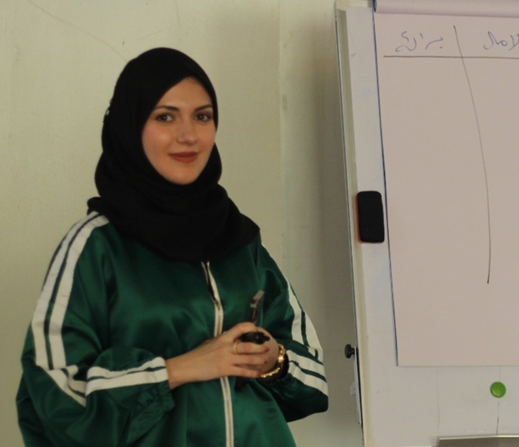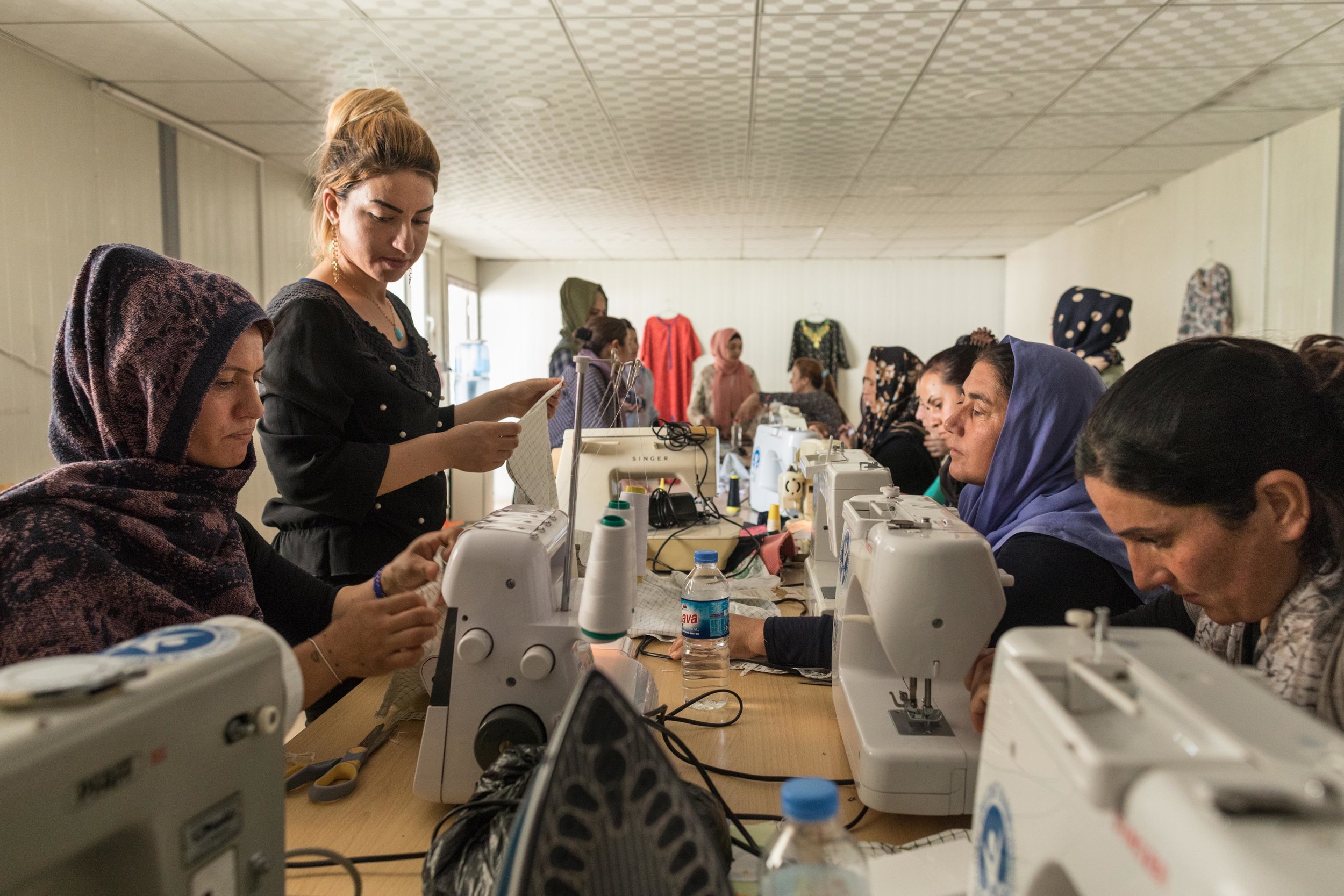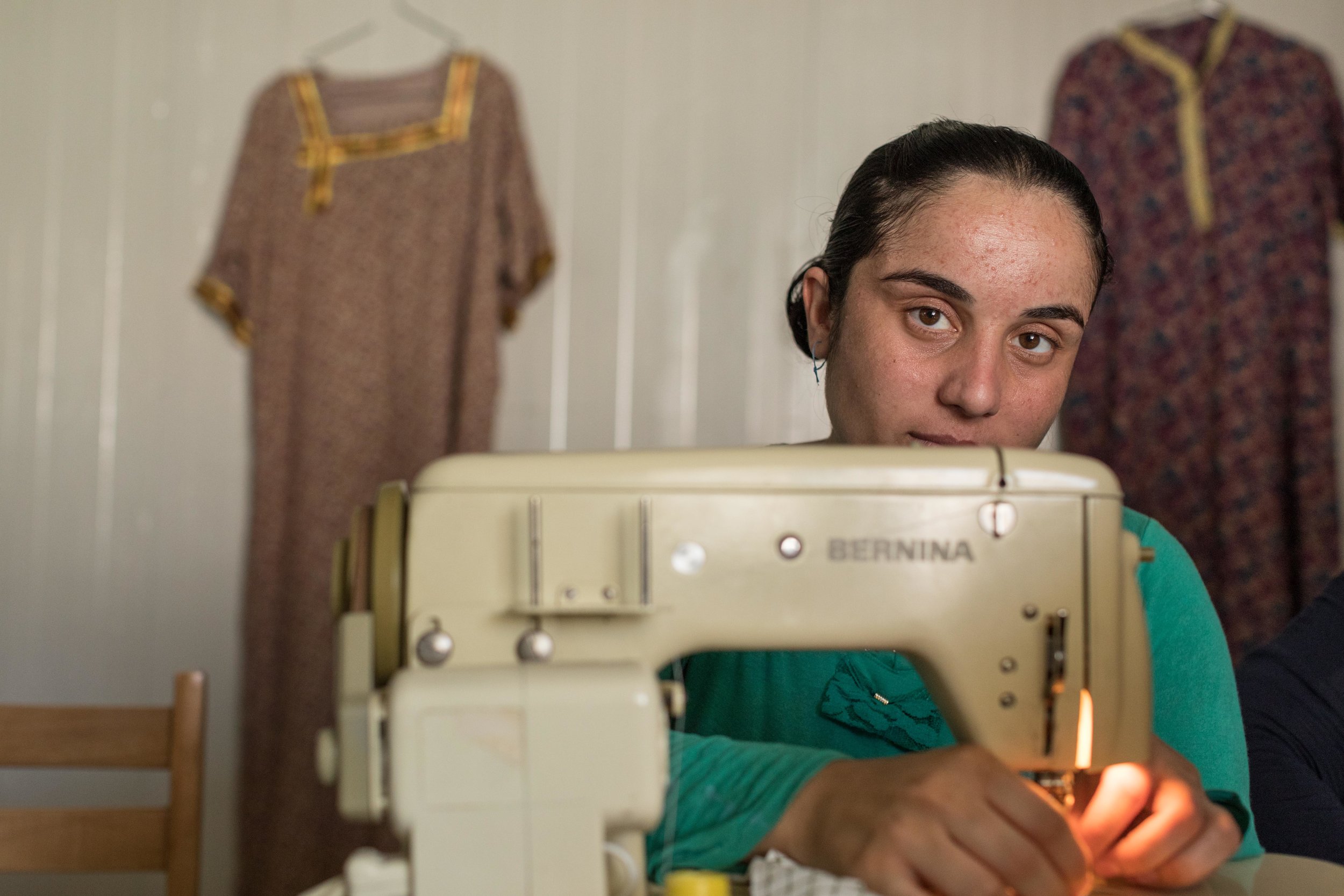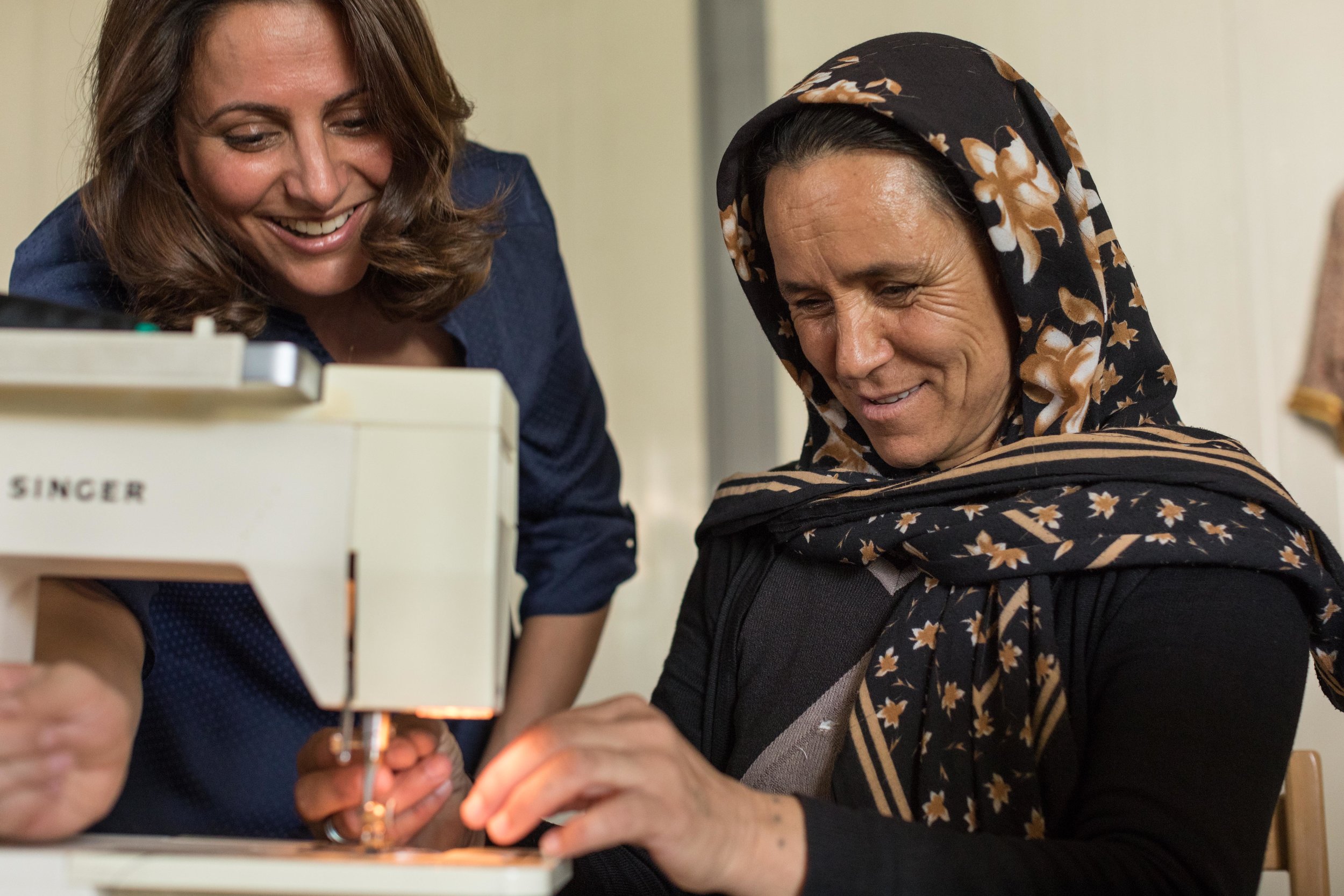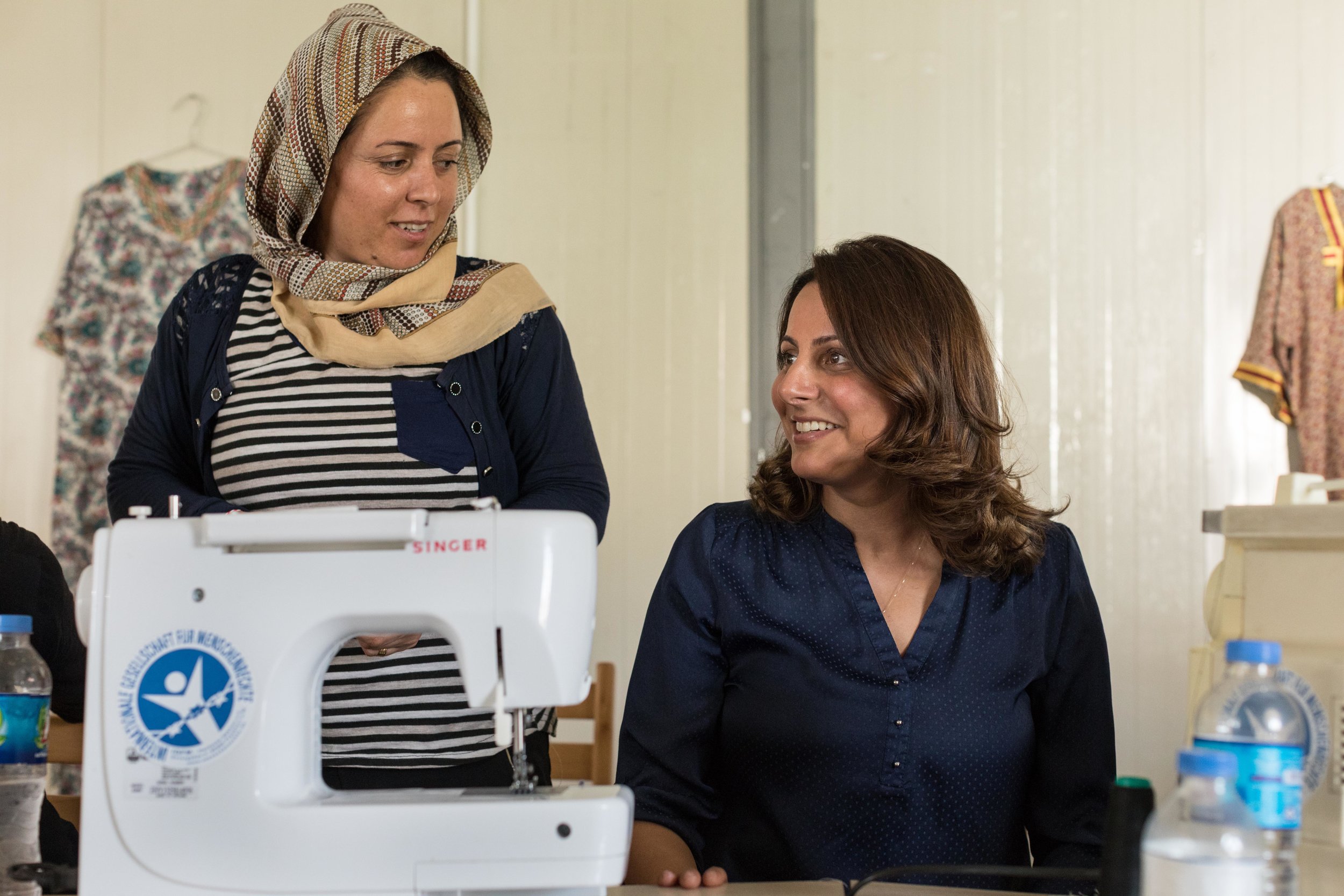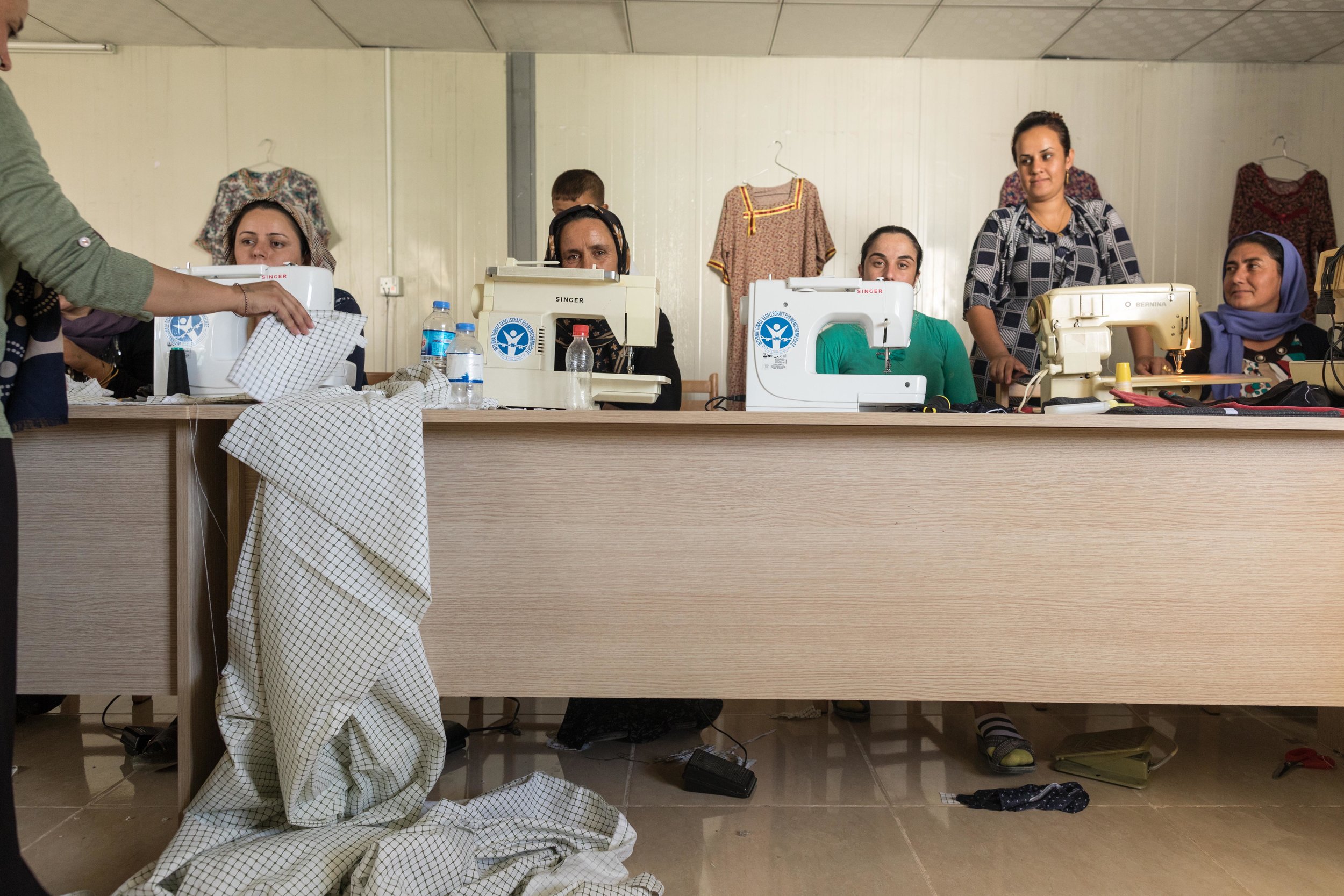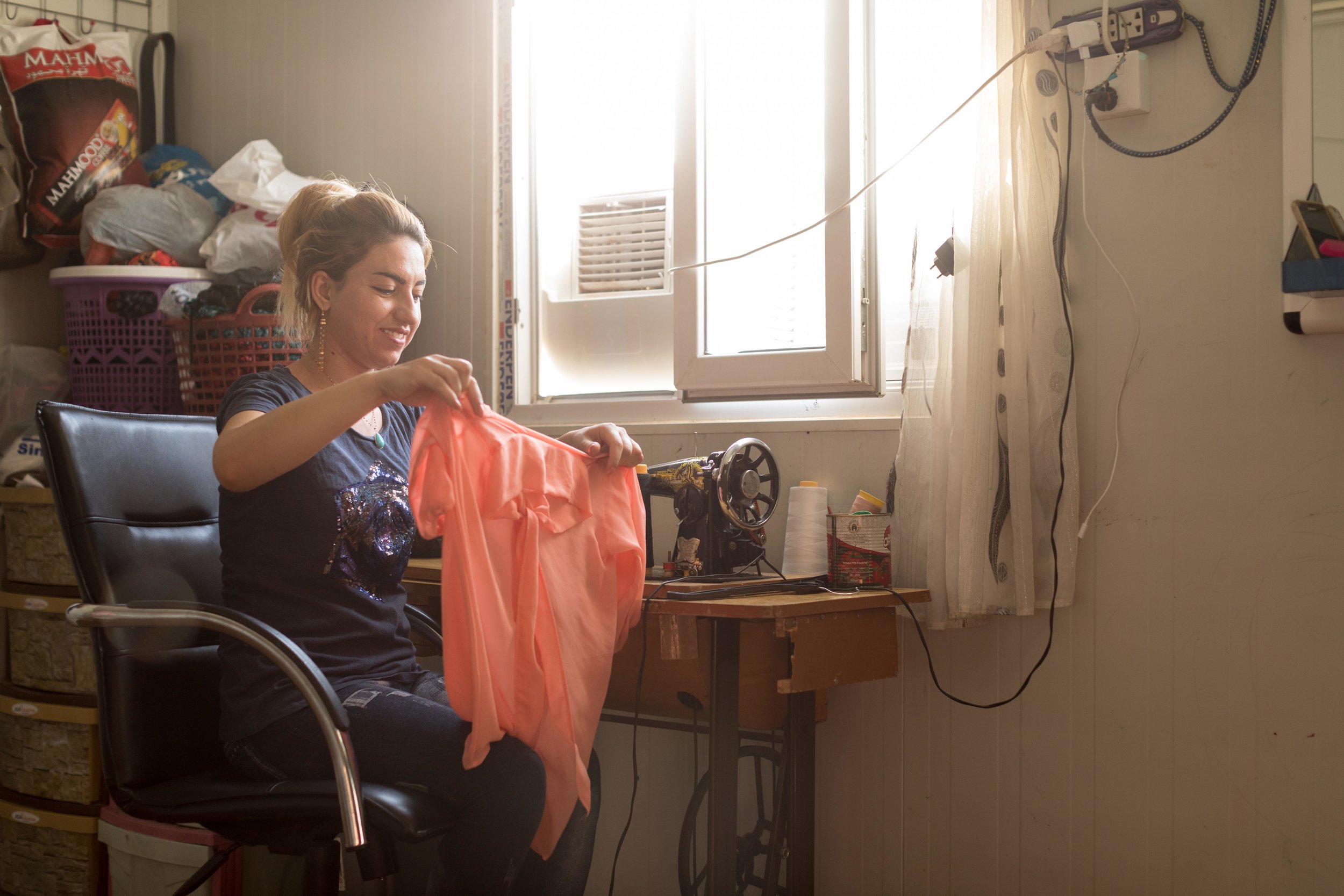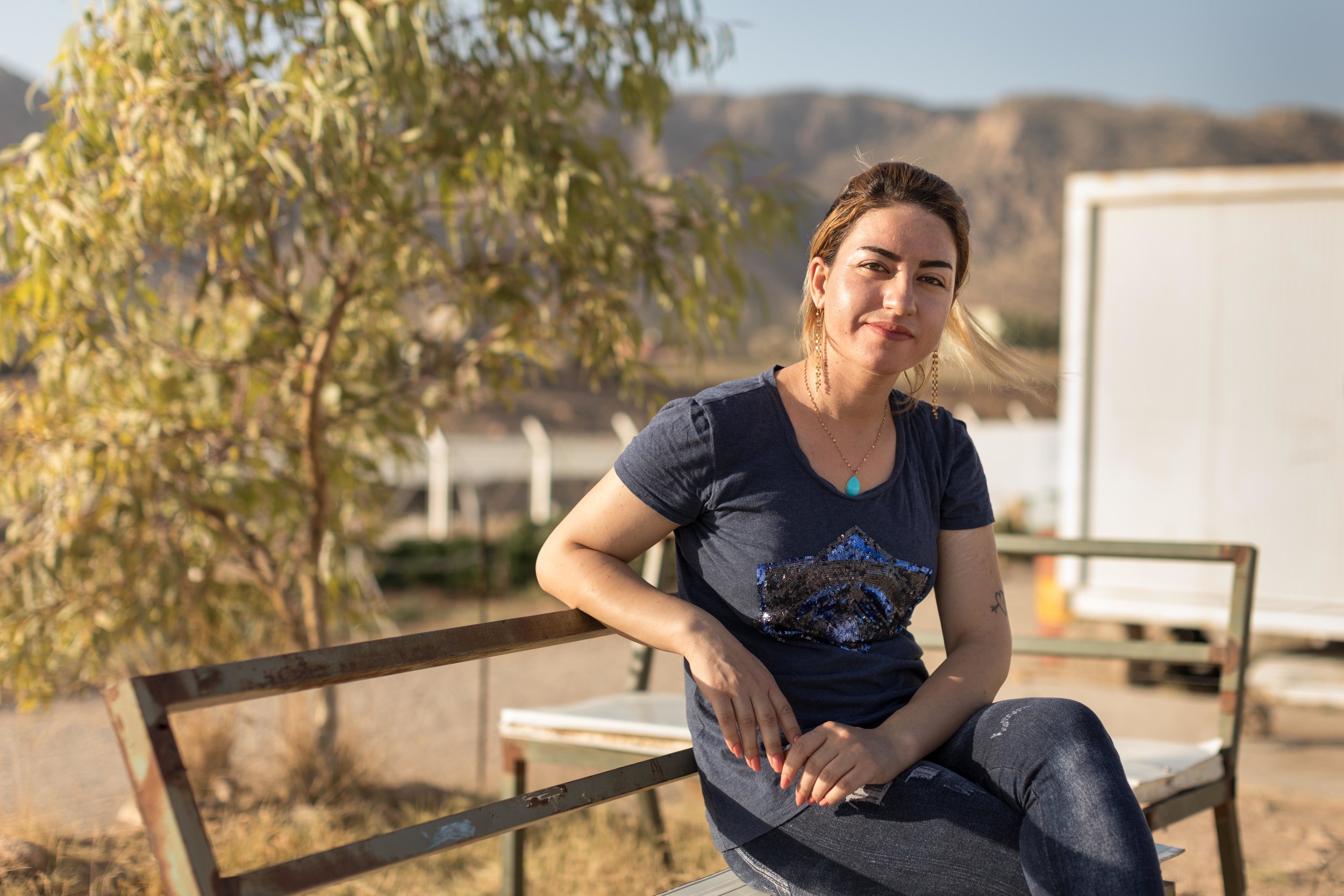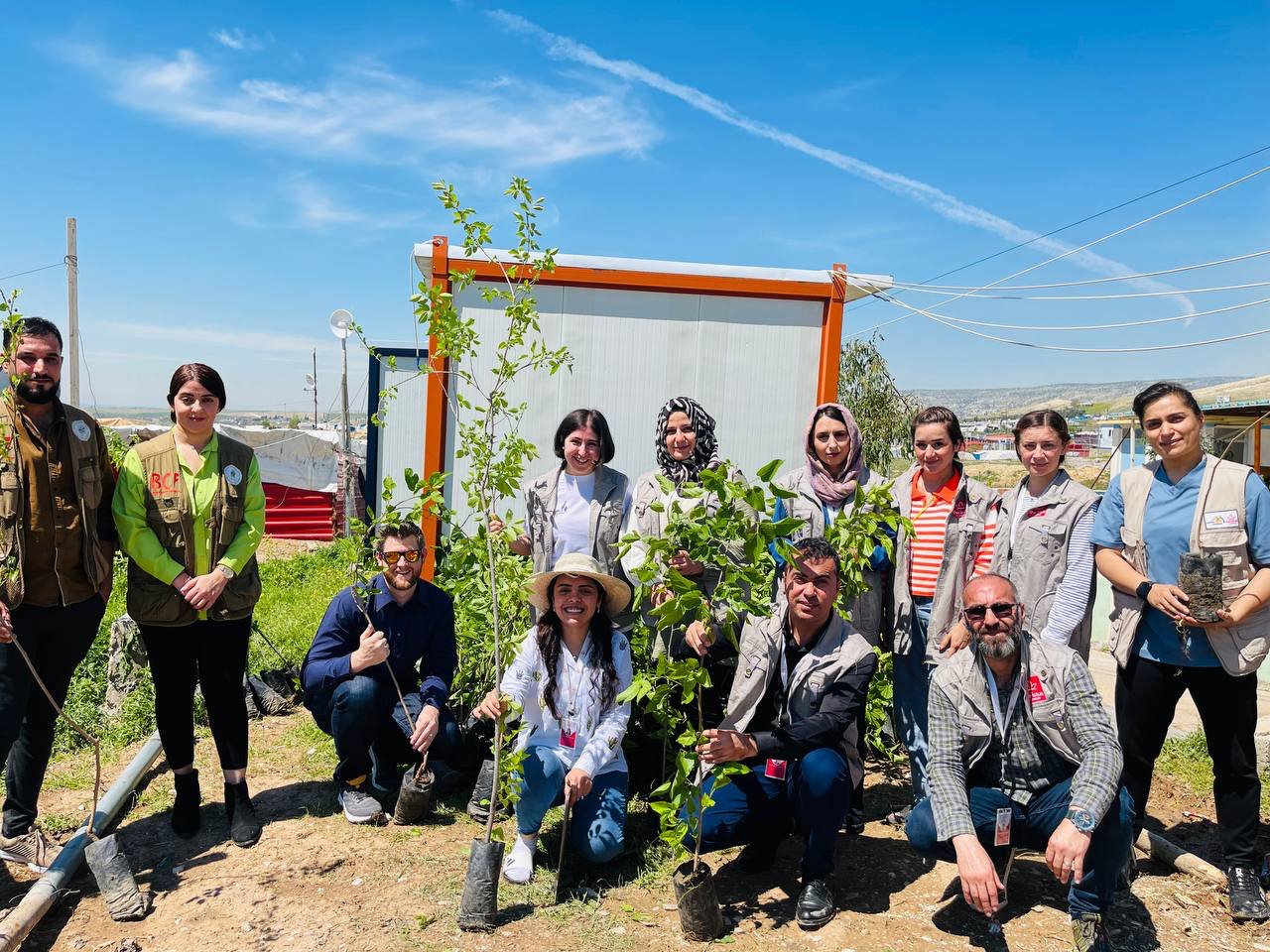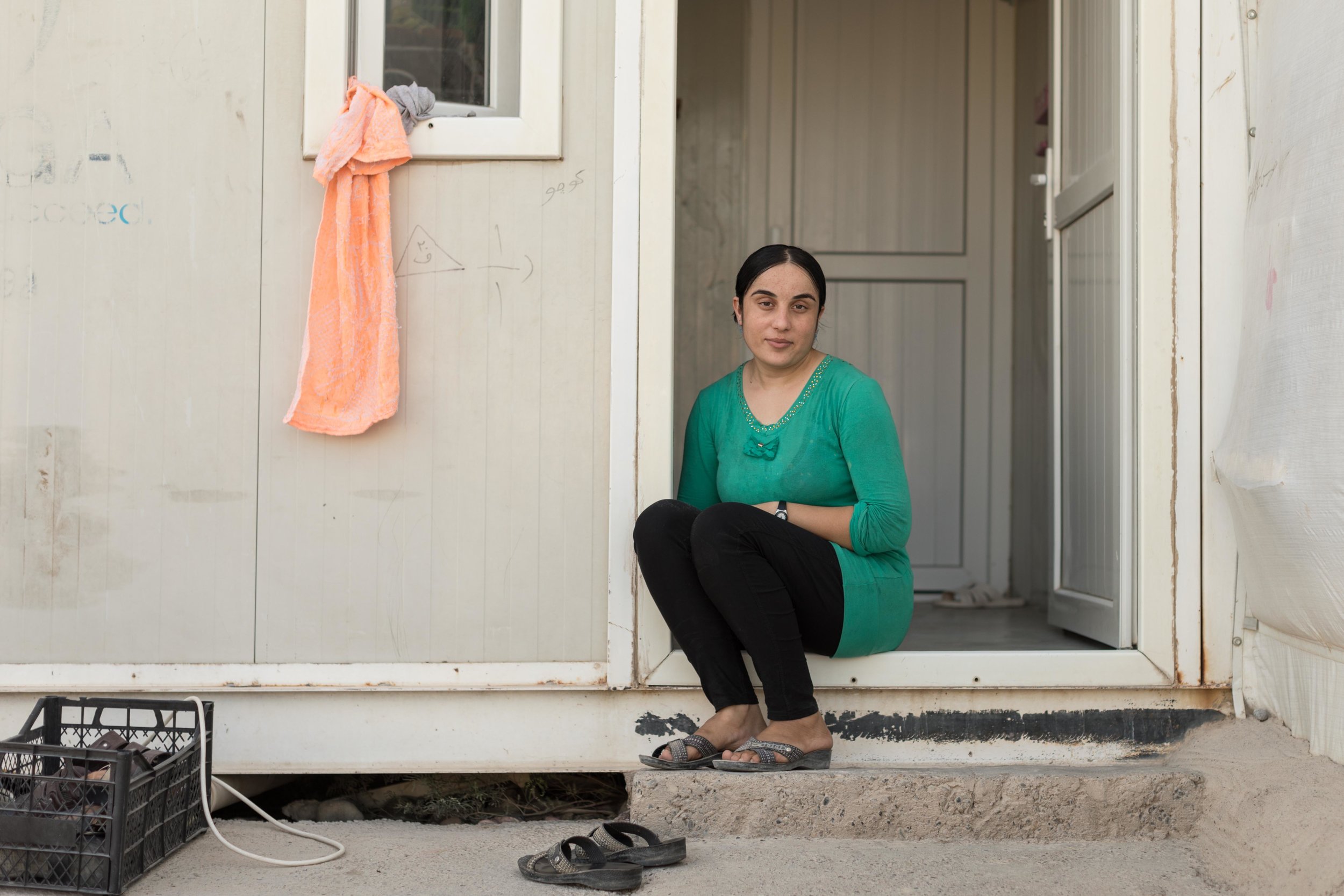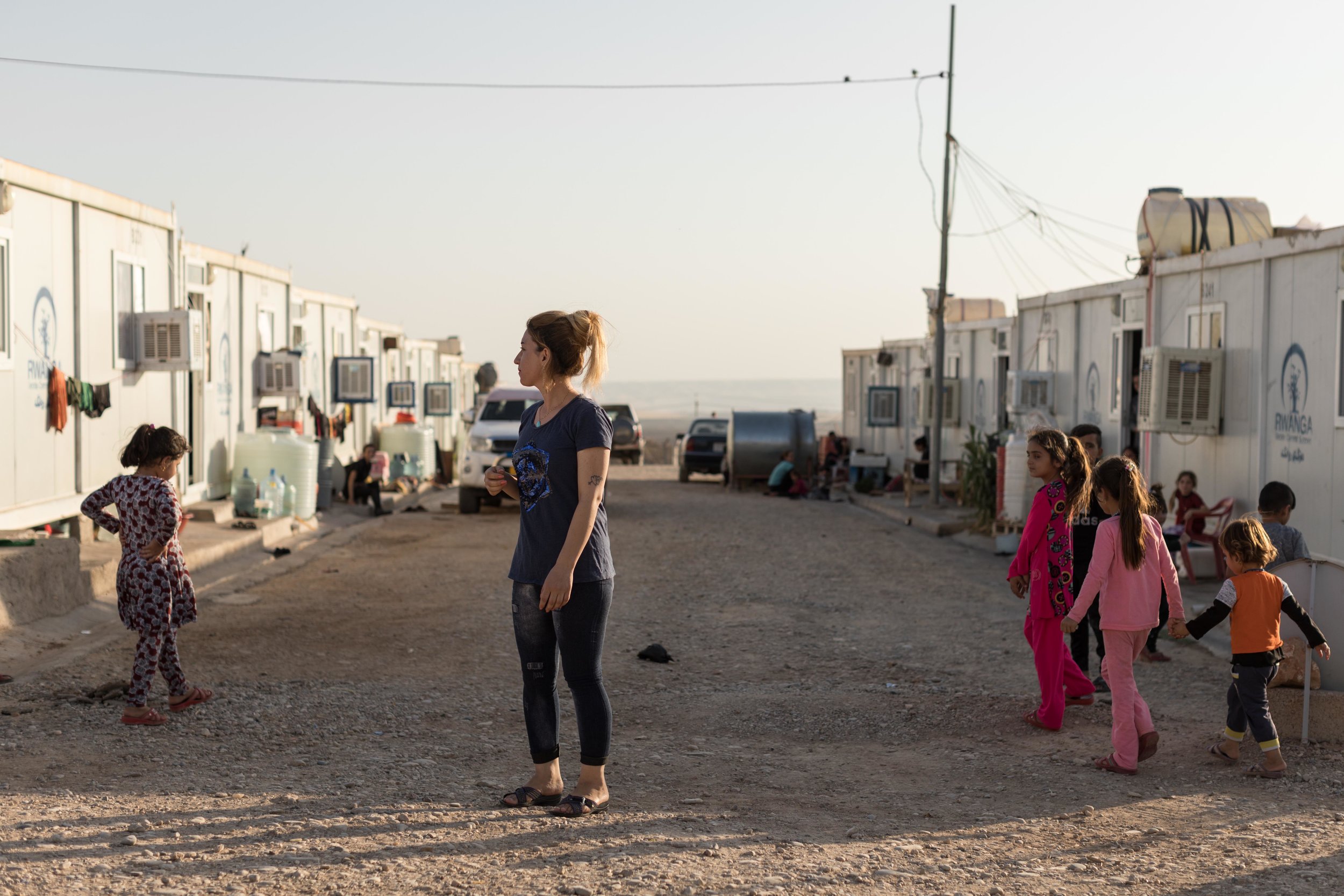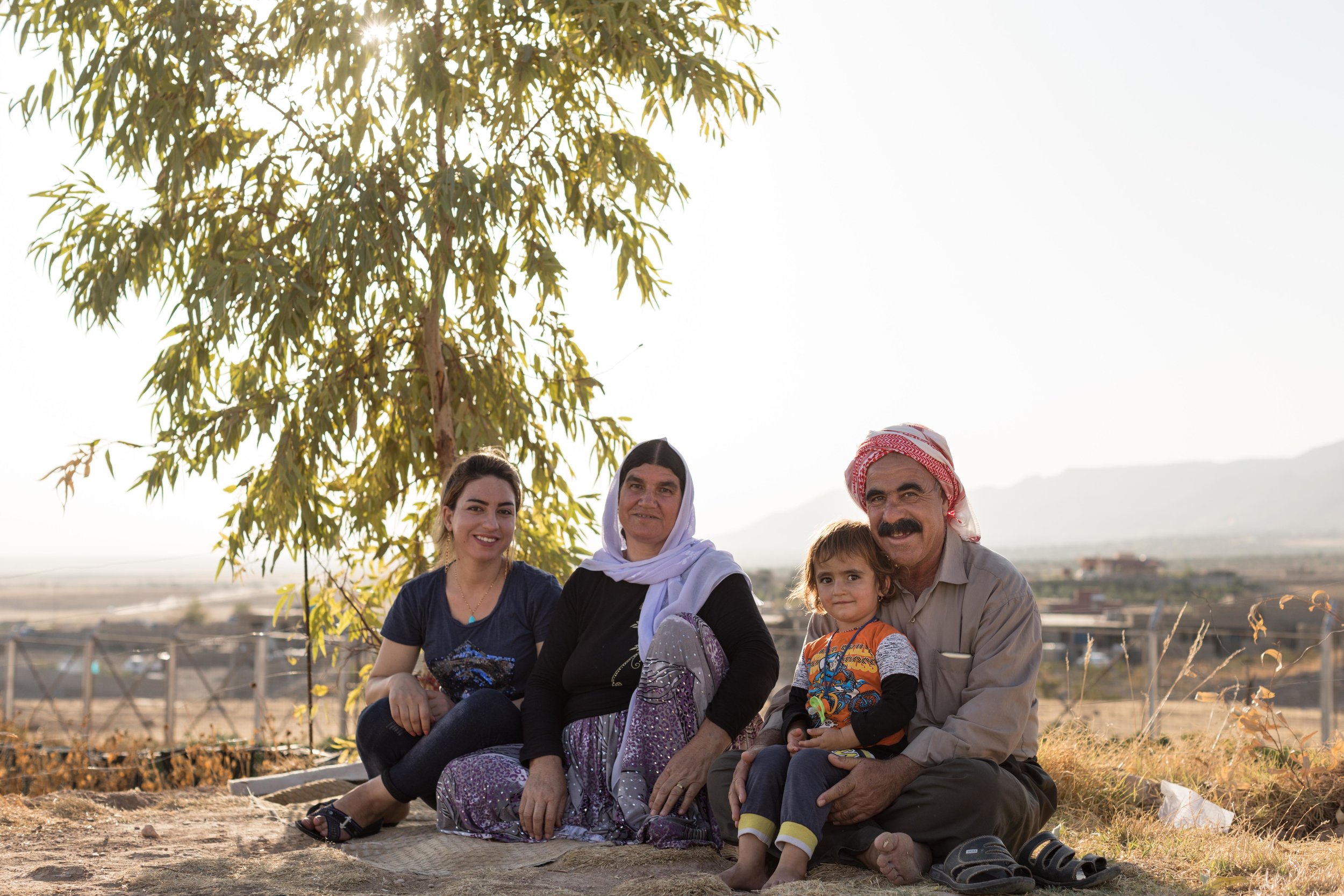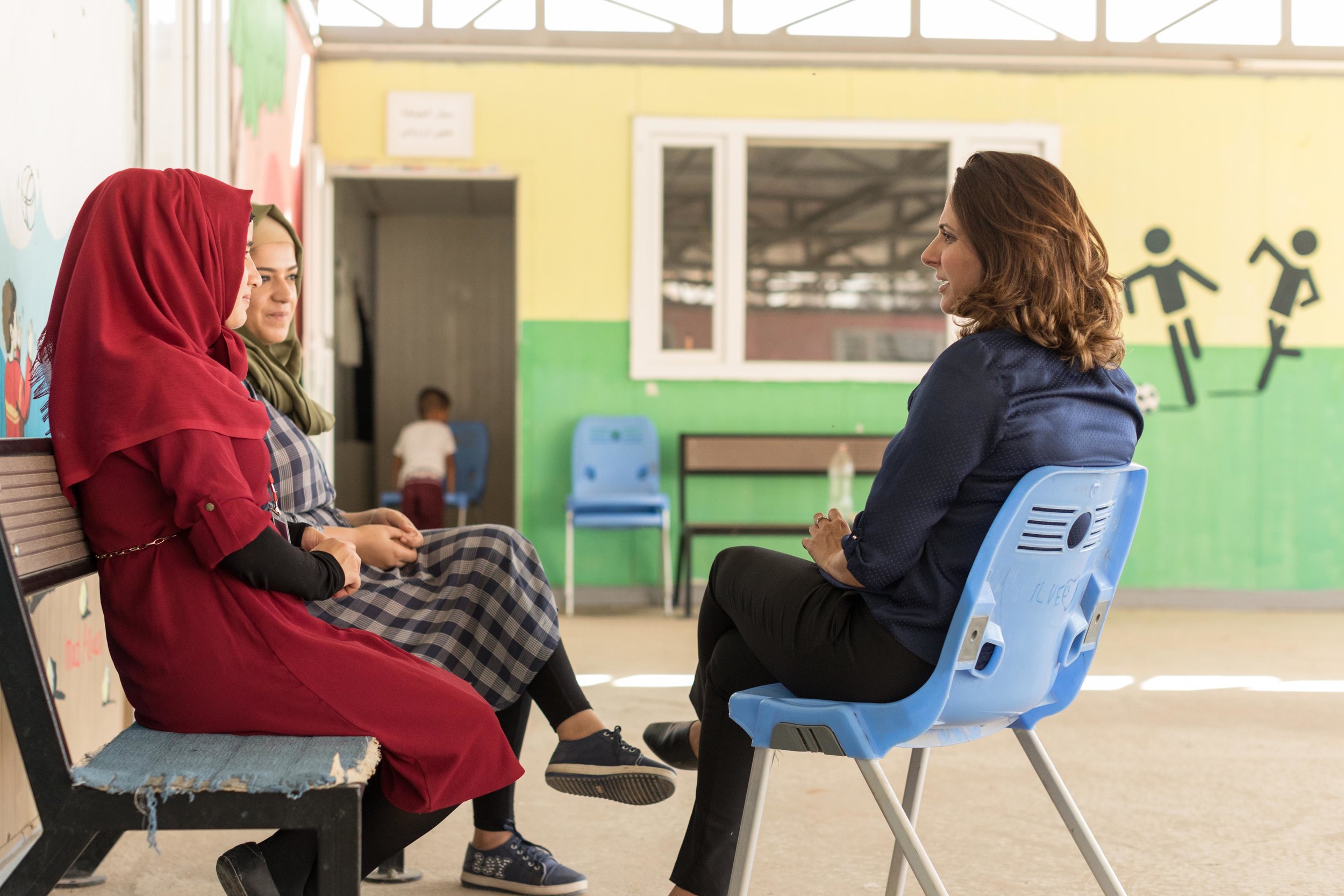Peace Sisters
As one of our newest projects, Peace Sisters provides women and girls with training so that they can lead peace processes and take a more active role in rebuilding their fractured communities. Although there are other projects on the ground that foster peacebuilding and social cohesion, we believe Peace Sisters is one of the first to train women to become mediators, peace defenders and active community leaders.
As one of our newest projects, Peace Sisters provides women and girls with training so that they can lead peace processes and take a more active role in rebuilding their fractured communities. First launched in partnership with the German Consulate, the project sees participants learn new skills in critical thinking, teamwork, communications and public speaking, with the aim of empowering them to recognise their human rights and take on prominent leadership roles.
Although there are other projects on the ground that foster peacebuilding and social cohesion, we believe Peace Sisters is one of the first to train women to become mediators, peace defenders and active community leaders.
Crucially, after the training, the women and girls implement community activities of their own choosing – which involve men and boys and encourage inclusion, collaboration and open dialogue across multiple faiths, cultures and generations. These activities have to date included awareness sessions around Women, Peace and Security, journalism workshops and self-defence classes.
Peace Sisters also falls directly in line with UN Resolution 1325, which calls for “an increase in the participation of women at decision-making levels in conflict resolution and peace processes.”
CASE STUDY
Laylan participated in Peace Sisters because she wanted to know more about mediation in conflict resolution. She says: “I enjoyed this experience, especially meeting new girls and learning about their experiences and opinions. My favourite thing about the training was that the mediation was taught by women and girls.”
She adds: “The training taught me to be in control of my feelings, be more confident, and be more goal-oriented in life. I hope this project grows and reaches more women and girls in the community as it is highly useful in different aspects of life.”
Women’s Centre
The Lotus Flower operates a women’s center that provides a safe and welcoming space for women while offering various activities and training programs. One of the aims of the center was to provide indirect psycho-social support for women who had experienced violence and/or sexual trauma at the hands of ISIS foot soldiers. Coming together to attend these classes has enabled the women to reconnect and create a network of support and friendship.
The Lotus Flower operates a women’s center that provides a safe and welcoming space for women while offering various activities and training programs. One of the aims of the center was to provide indirect psycho-social support for women who had experienced violence and/or sexual trauma at the hands of ISIS foot soldiers. Coming together to attend these classes has enabled the women to reconnect and create a network of support and friendship.
Some of the class offerings have included yoga, music lessons, professional beauty / make up, and first aid training. The center also offers regular awareness sessions to discuss important topics that affect the community’s daily life, such as health, social, and legal issues.
Impact
40 women have attended 2 first aid classes taught in conjunction with the Rwanga community hospital and learned skills they can apply in their daily lives. The women all received first aid kits at the end of the course, which contain basic first aid supplies so that the skills learned in the course can be put into practice when necessary.
Music lessons have been taught in one course so far, to 10 girls over the course of 2 months. The attendees went from no experience with the instruments to sufficiently skillful to put on a recital, much to the surprise and delight of the other women who attended, and they plan to continue to play at future celebrations at the women’s center.
Success Stories
Gulistan Sabri Alyas, 25, participated in the beauty course and enhanced her skills in hair dressing and makeup, even helping to teach others during the course. She now runs a small salon out of her home and earns an income from these skills every month.
Nora Mato, 30, is an ISIS survivor, many of whose family members were killed, and she now lives alone with her sick mother. Her first aid training has given her more confidence that she will be able to help her mother if she faints or has urgent medical needs. “I’m alone with my mother and I knew that I need to learn the first aid skills so as to be able to help my mother, she is the only one left for me and I want to take care of her very well.”
Khokhe Shivan Haji is 25, married, and has 2 children. She also attended the first aid course and was particularly interested in the talk on breast cancer. “I went home and practiced what the teacher told me [and] I noticed that there [was] a small swilling on one of my breasts that existed before. I never cared about it….[but] now I became worried,” she told us. She went to the doctor the next day and was given a prescription to take immediately. She’s now recovering well and visits the doctor on a regular basis.
Survivor Support
The Lotus Flower provides ad hoc support to survivors of genocide inside and outside of Kurdistan. The programming can include awareness training sessions, such as legal issues and women’s rights, as well as professional psychological support. The Survivor Support program creates custom responses to individual cases based on the situation.
The Lotus Flower provides ad hoc support to survivors of genocide inside and outside of Kurdistan. The programming can include awareness training sessions, such as legal issues and women’s rights, as well as professional psychological support. The Survivor Support program creates custom responses to individual cases based on the situation.


